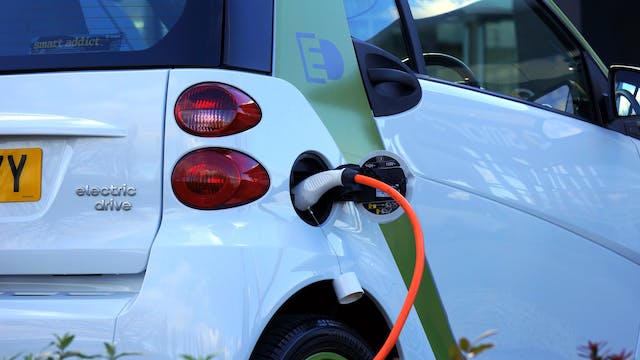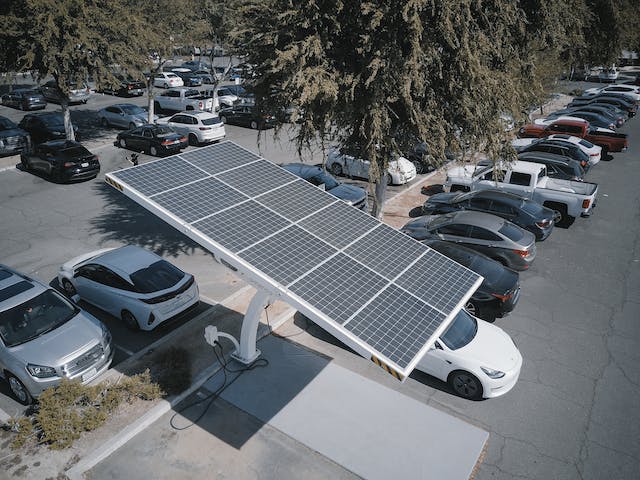Comments
- No comments found

In the fast-paced realm of sustainable transportation, electric vehicles (EVs) stand as a beacon of innovation, guiding us towards a more eco-friendly future.
This shift to electric mobility highlights the growing significance of efficient and accessible EV charging solutions, essential for the adoption and success of EVs. This article aims to provide an in-depth understanding of the various types of EV charging stations and their role in accommodating different user needs.
EV charging stations are the cornerstone of the electric vehicle industry, offering the necessary power to keep these innovative vehicles running. These stations range from simple home-based setups to advanced, networked public charging systems. They play a crucial role in ensuring that EV drivers have convenient and reliable access to charging facilities.
Home chargers, often installed in personal garages, allow for overnight charging, providing EV owners with the convenience of starting each day with a fully charged vehicle. In contrast, public charging stations are located in various public spaces such as shopping malls, parking lots, and office complexes, enabling drivers to recharge their vehicles while on the go.

Level 1 chargers are the most basic type of EV charging station. They typically use a standard 120V AC household outlet and are best suited for overnight charging. These chargers are ideal for drivers with a regular commuting pattern, as they offer a slow, steady charge.
Level 2 charging stations represent an upgrade from Level 1 chargers, utilizing a 240V outlet similar to those used for heavy household appliances. These chargers offer faster charging times, making them suitable for both residential and commercial settings.
DC Fast Chargers, also known as Level 3 chargers, provide the fastest charging option available. They are particularly valuable for long-distance travel and time-sensitive situations, capable of charging an EV battery to 80% in approximately 30 minutes. However, they require more complex infrastructure and are primarily found at public charging stations.
When choosing an EV charging station, several factors should be considered, including the vehicle's specifications, the driver's daily mileage, and preferred charging speed. For overnight charging or for those with a consistent daily travel routine, Level 1 chargers might be sufficient. However, for faster and more efficient charging, especially for drivers with longer commutes or less predictable schedules, Level 2 stations are often recommended.
While the different types of EV chargers may seem pretty straightforward, the installation side of EV chargers is far less simple. For this exact reason, some electricians have taken it upon themselves to become experts in home EV charger installation. This has allowed these professionals to offer comprehensive EV charger installation services with confidence.
Now, there are electricians out there who might have a general idea of how to install EV chargers, but at the end of the day, it is extremely important charger installation is done 100% by the book and that nothing is forgotten or missed. There have been several instances of EV chargers and EVs themselves catching fire inside of garages due to improper charging, poor maintenance, etc.
Do yourself and your family a favor, hire an expert."

The future of EV charging is marked by exciting innovations that promise to enhance convenience and sustainability. Concepts such as wireless charging pads and solar-powered charging stations are being explored and developed. These advancements aim to streamline the charging process and reduce the reliance on traditional power sources, further contributing to the environmental benefits of EVs.
The evolution of EV charging infrastructure is a critical component of the global shift towards electric mobility. The development of more efficient, faster-charging, and user-friendly stations is expected to continue, making EVs more appealing to a broader range of consumers. Additionally, the integration of smart technology in charging stations is on the rise, offering features like real-time availability updates, remote charging management, and integration with renewable energy sources.
As the world moves inexorably towards an electrically powered future, the role of robust and advanced charging solutions becomes increasingly evident. EV charging stations are not just amenities but essential components in the transition to sustainable transportation. They represent the connective tissue between the current state of mobility and a future where electric vehicles are the norm.
With the continuous advancements in charging technology and infrastructure, EV drivers can look forward to an ecosystem that supports their lifestyle, reduces carbon emissions, and paves the way for a cleaner, greener world. Understanding the different types of EV charging stations is the first step in embracing this electric future.
Luke Fitzpatrick has been published in Forbes, Yahoo! News and Influencive. He is also a guest lecturer at the University of Sydney, lecturing in Cross-Cultural Management and the Pre-MBA Program. You can connect with him on LinkedIn.
Leave your comments
Post comment as a guest